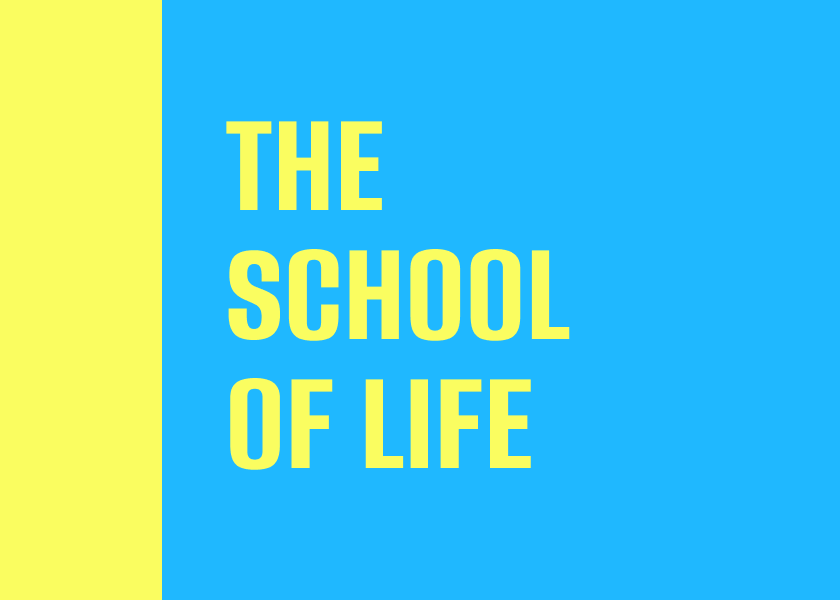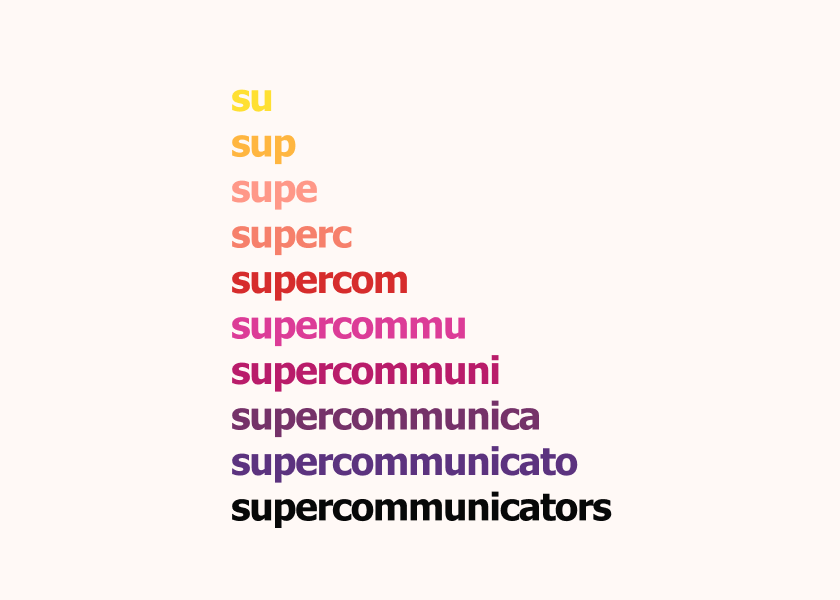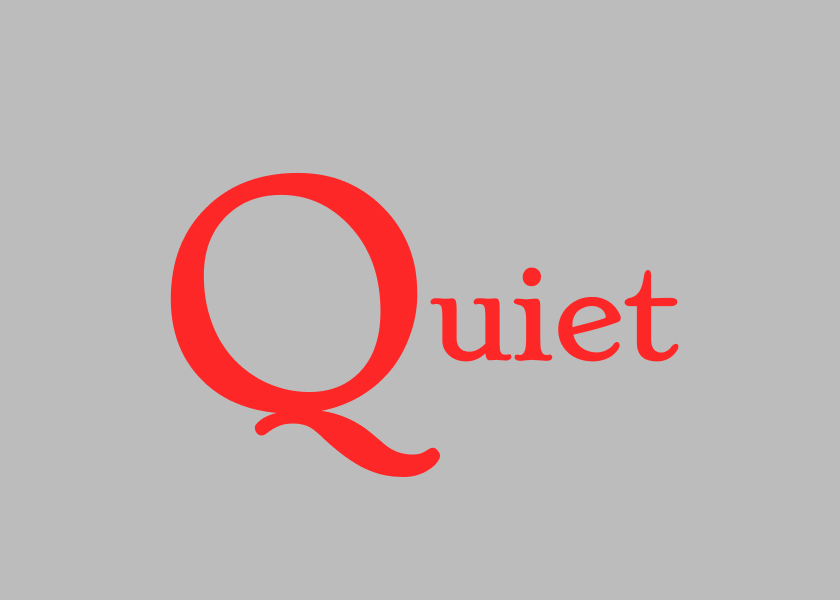The School of Life by Alain de Botton - Summary
Discover how to navigate life's challenges and cultivate a more fulfilling existence.This book challenges conventional thinking about self-help and the purpose of education. It dares to believe we can learn systematically what we often only get from painful experiences.

Listen to ShelfHelp's podcast about the book The School of Life.
Do you often feel like life is a series of stumbles, that you're navigating your emotions and relationships with a map that's incomplete? The School of Life: An Emotional Education, introduced by Alain de Botton, offers a compelling alternative to this haphazard approach. This book isn't a dry textbook; it's a guide to understanding yourself, improving your relationships, and finding meaning in a complex world. It dares to suggest we can learn systematically what we often only acquire through painful experience.
Table of Contents
- About the Author
- Who Should Read This Book?
- Key Insights and Themes
- Detailed Summary
- Review
- Actionable Takeaways
- FAQs
- Conclusion
About the Author
The book is introduced by Alain de Botton, a renowned philosopher and author known for his insightful explorations of everyday life. He is also the founder of The School of Life, an organization dedicated to emotional education. De Botton's work bridges the gap between philosophy and daily experiences, making complex ideas accessible and relevant to a wide audience. His involvement in this project underscores the book's commitment to providing practical wisdom for navigating the emotional challenges of modern life.
Who Should Read This Book?
This book is for anyone who feels they could benefit from a better understanding of their emotions and relationships. Specifically, it's ideal for:
- Individuals seeking self-knowledge: If you're curious about your motivations, anxieties, and patterns of behavior, this book will provide valuable insights.
- Those struggling in relationships: Whether it's romantic, familial, or professional, the book offers guidance on communication, conflict resolution, and fostering genuine connections.
- People feeling lost or unfulfilled in their work: It delves into finding meaning and purpose in your career, as well as managing workplace dynamics.
- Anyone wanting a more meaningful life: The book tackles larger existential questions, offering a framework for coping with the tragic structure of existence and finding gratitude.
- Readers interested in philosophy, psychology, and culture that will expand their thinking. For instance, if you're frequently caught in arguments that seem to go nowhere, or you struggle with feelings of inadequacy, or you wonder why you're drawn to certain types of people and not others, this book can help.
Key Insights and Themes
Here are some of the key takeaways and main ideas from The School of Life: An Emotional Education:
- Emotional Intelligence: Love is a skill, not just a feeling, requiring trust, vulnerability, and generosity.
- The Importance of Self-Help: The concept of self-help has been unfairly maligned; learning to manage one's emotions is a worthwhile pursuit.
- Melancholy and the Tragic Structure of Existence: Melancholy is a noble sadness that arises from an awareness of the suffering at the heart of human experience.
- The Paradox of "The School of Life": We learn best from painful experiences, which could be acquired systematically rather than haphazardly.
- Addiction and Avoidance: Addictions are not just to substances but to everyday activities that keep us from facing our darker feelings.
- Candor and Self-Awareness: The importance of being honest with ourselves, even about unpleasant truths.
- The Power of Listening and Witnessing: How being listened to can offer security and facilitate self-understanding.
- The Need for a "Breakdown": Sometimes it's necessary to stop and re-evaluate our lives, which can lead to growth and self-knowledge.
- Kindness and Charitable Interpretation: Understanding the motives behind other people's behavior, especially when they are hurtful.
- The Nuances of Politeness: The distinction between politeness and frankness, and how to use them effectively.
- The Value of Vulnerability: Revealing our imperfections can actually make us more endearing to others.
- The Importance of Being Alone: The need to be alone to reconnect with ourselves.
- The Myth of Sexual Liberation: How conflicted, ashamed, and odd we all remain about sex despite the impression that we are in sexually enlightened times.
- The Roots of Affairs: Affairs often begin long before the actual act of infidelity, rooted in emotional disconnection.
- Arguments as Misunderstandings: Arguments are often a manifestation of deeper conflicts and a struggle for respect.
- The Need for "Good Enough": Accepting imperfection in life and relationships.
- The Problem with Fame: Fame is often pursued out of a desire for kindness, but it can't provide what people seek from it.
- Specialization versus exploration we are required to specialize in work and relationships, but we also long to explore the many versions of ourselves.
- The "Higher Needs" of Capitalism: Consumer capitalism has been more concerned with our physical and simple psychological needs instead of our more important “higher” needs of friendship, belonging, and purpose.
- The Power of Art as a Source of Consolation: The ways in which we may find solace in art and in the perspectives of artists.
Detailed Summary
This book explores a range of interconnected ideas about how to live a more fulfilling life. Here’s a breakdown of key concepts:
- Education and Emotional Intelligence: The modern education system focuses on professional and academic knowledge but often neglects emotional intelligence. Emotional intelligence involves the ability to introspect, communicate, understand others' moods, and relate with patience and empathy. This book contends that love, work, and well-being are skills that can be learned. It also contends that our museums are not serving us as cathedrals of secularism by providing emotional support and guidance.
- Self-Help and Emotional Education: Self-help has been unfairly discredited, and the book argues for a return to the idea that we need solace and emotional education. Great thinkers like Aristotle and Montaigne have engaged in self-help, recognizing the need for guidance in navigating life's complexities. The book also suggests there is potential to bring self-help into the mainstream and move away from sentimentality.
- The Significance of Melancholy and Acceptance: The book suggests that melancholy is not a disease but an acknowledgment of the tragic aspects of life. It emphasizes the importance of accepting suffering and disappointment. Furthermore, it highlights the simple truths of emotional life and the "small things" that can cause us great suffering. The need to be sophisticated enough not to reject a truth because it sounds familiar is also addressed.
- The "School of Life" Paradox and the Nature of Addiction: The phrase "the school of life" highlights that life experiences often teach us more than formal education does. The book explores how we can systematically learn from these experiences. It also contends that we can be addicted to "innocuous" activities like checking the news as an alternative to working on our psyches. The book points out that we tend to bury our personal stories beneath an avalanche of expertise rather than learn from our past.
- Candor and Self-Awareness: This section emphasizes the importance of being honest with ourselves and others, even about uncomfortable truths. It suggests that it is important to explore our own minds, look into the darker corners, and admit our follies, envies, and confusions.
- The Power of Listening and Witnessing: The book suggests that much of what we are remains a secret because we are aware of how much of it flouts the laws of decency. The act of witnessing, having someone listen to our thoughts and feelings without judgment, is necessary for psychological health. Active listening means helping a person to develop the points they are circling without interruption. An active listener nurtures emerging confusion, gently guiding us back to previous points that might have been glossed over. The book emphasizes the need to develop an emotional understanding of the past and not merely an intellectual one.
- Managing Anxiety: The book presents that we should make a list to tame our anxieties, forcing ourselves to imagine what might happen if our vague, catastrophic forebodings actually came to pass. It emphasizes the need to map out the terrain of normality and recognize that life, properly felt, is an infinitely alarming process.
- The Importance of a "Breakdown": Human beings are very good at keeping going and surrendering to the demands of the external world. The book highlights the importance of stopping, reflecting, and re-evaluating your life by acknowledging that we are all on the verge of needing someone to come to our imaginative aid. It also provides insights about the generosity of interpretation, offering a less catastrophic view of others' behavior. Furthermore, it notes that the way in which tragic stories are told is intended to leave audiences stunned by the recognition of how easily a life can be undone.
- Kindness and Understanding Motives: The text suggests that we need to remain constant providers of generous interpretations of the lives of others and that weakness-free people do not exist. It highlights that we can be kind by distinguishing between a person's overt actions and their underlying motives, and recognizing that almost all of our worst moments can be traced back to pain. The story of "Androcles and the Lion" illustrates how kindness and pity can arise from an understanding of someone else's suffering.
- Frankness versus Politeness: The book explores the differences between frank and polite personalities. The frank person assumes that other people are similar to them, which can lead to genuine connections but also to ignoring the feelings of others. In contrast, polite people are more aware of the differences between people and are mindful of others' vulnerabilities. The text explores how these different approaches to life can influence our relationships, work, and how we feel about money. It concludes that the frank person is kind in a bold way while the polite person is more interested in minor improvements.
- Charm, Shyness, and Vulnerability: Shyness is a condition rooted in the experience of difference, but the book suggests that we all share a universal commonality. The interesting person is the one who shares their deeper selves with honesty, while the boring person is the one who doesn't dare to. We can win friends through revealing our failures and showing vulnerability. A warm person will notice when we’re in need of comfort and will be attuned to the fact that everyone is clumsy, frightened, desirous, and fascinatingly unbalanced beneath their competent exterior.
- Active Listening: The good listener creates space for conversations to become meaningful and is committed to the task of helping us understand our vague and undefined thoughts. Active listening involves giving encouraging remarks and making positive gestures that guide the other person to a deeper understanding of their issues. The book makes the point that good listeners are also skilled interrupters who interrupt only to help the other person get back to their more sincere concerns.
- Anxiety and the Need to Be Alone: Anxiety is a reasonable response to the genuine strangeness of existence, and the need to be alone is necessary to avoid forgetting who we are. The book highlights the sublime as a way to cope with our troubles by giving a sense of the lesser status of humanity. It also includes a discussion on being a "hellish proposition" and the "hellishness of others" which are both presented as a normal part of life.
- The Importance of Sex, Love Affairs, and Arguments: The book suggests that sexual liberation is a myth, and most of us remain conflicted, embarrassed, and odd about sex. It offers a reading of Proust's In Search of Lost Time to demonstrate the complexity of sexual expression. The text argues that affairs begin long before the actual act of infidelity and are often rooted in emotional disconnection. Furthermore, it argues that the cause of our arguments is not about the superficial disagreement, but is in fact a deeper conflict about respect. The book also points out that it is possible to be cruel while maintaining a calm demeanor.
- The Problem of "Normality" and the Need for Kindness: We tend to bolster our opinions by claiming that it is the "normal" opinion, but the book contends that we should not give so much weight to the opinions of others. Furthermore, we should be aware that our hurt, humiliation, and disappointments can accumulate into arguments, and we should try not to judge faulty attempts at teaching and instructing.
- The Importance of Domestic Life and "Good Enough": Romantic culture often neglects the practicalities of living together, like household chores, but we need to take domestic life seriously. We should be kinder to ourselves by focusing on what we have rather than on what is missing and recognize that, in a non-starry-eyed way, our lives are "good enough".
- The Impostor Syndrome and Specialization: Underconfidence stems from a skewed picture of what a normal person is like. The book presents the idea that we are all essentially fools, and our idiocies should not exclude us from society. Furthermore, we should trust that others' minds work in the same way as our own, and we should not see successful people as being more than average, muddled, and fretful. Specialization of labor can bring many benefits, but it also forces us to suppress parts of our nature.
- The Problems of Capitalism and the Future of Consumption: It makes the point that capitalism provides a lot of material goods, but has failed to focus on human "higher needs" such as the need for friendship, belonging, and meaning. The book presents the idea that the future of capitalism should focus on fulfilling these higher needs. The book also suggests that our desire for fame arises from the experience of neglect and injury, but it will not fulfill that need. A healthy society will recognize this problem and encourage politeness and kindness rather than fame. The book suggests that "fripperies" drive economies and give jobs to the poor.
- Artistic Sympathy, Honesty, and Gratitude: It is important to use reason to defend against primeval chaos rather than surrendering to our emotions. While Romanticism emphasizes authenticity and honesty, Classical thinking suggests that politeness is a lid we use to stop hurting those we care for. It is important to show gratitude for what we have rather than focusing on what is missing.
- The Nature of Wisdom: The book outlines the ingredients of wisdom, including realism, humor, politeness, self-acceptance, and forgiveness. It suggests that the wise understand that many things are challenging and are realistic about how difficult it is to change people's minds.
Review
The School of Life: An Emotional Education is a profound and thought-provoking book that is full of insightful advice. Its strength lies in its ability to connect philosophical ideas to everyday life, offering practical guidance on navigating our emotions and relationships. The book’s exploration of complex themes like melancholy, kindness, and vulnerability offers a deeper understanding of the human experience. It also challenges conventional thinking on many topics such as the purpose of education, the meaning of self-help, the nature of sex, and the goals of capitalism.
However, the book may be repetitive at points with similar ideas being explored in different contexts. It also presents many arguments from the perspective of the upper-middle class, which might seem limiting to some readers. Furthermore, the tone of the book can be somewhat detached and academic at times, which might make it harder for some people to engage with on an emotional level.
Actionable Takeaways
How to Apply These Lessons in Real Life:
- Practice active listening: When someone is speaking to you, try to focus on their concerns without interrupting. Use prompts like "Tell me more about that" or "How did you feel about that?".
- Embrace vulnerability: Don't be afraid to show your imperfections and share your vulnerabilities with others. This can actually help you build deeper connections.
- Cultivate self-awareness: Take time for introspection. Ask yourself what your motivations are and try to understand your habitual patterns of behavior.
- Question your assumptions about "normality": Don't assume that your view of the world is shared by all, or that "normal" is always the best way.
- Practice kindness and charitable interpretation: When others act in a way that upsets you, try to understand their motives. Consider their pain and past experiences.
- Reframe your anxieties: Recognize that anxiety is a natural response to the challenges of life, not a sign of weakness. Try making a list of your anxieties to tame their hold on you.
- Be honest with yourself: Be honest about the aspects of yourself that are unpleasant to acknowledge and learn from this self-knowledge.
- Don't be afraid to be alone: Take the time to disconnect from others to reconnect with yourself.
- Seek emotional understanding of the past: It's important to seek emotional understanding of the past and not merely an intellectual one.
- Learn to distinguish between your surface concerns and your deeper needs in both your arguments and your career aspirations.
- Be generous with your interpretations of others: Don't be quick to condemn, but try to interpret others' behavior with kindness and charity.
- Recognize that your life doesn't have to be perfect to be "good enough": Don't strive for perfection. Appreciate the good things in your life, both big and small, and recognize when you have reached an acceptable result.
FAQs
- What is "The School of Life: An Emotional Education" about? It's a guide to understanding yourself, improving your relationships, and finding meaning in the world, offering insights on a wide range of topics from self-knowledge to work and culture.
- Is "The School of Life: An Emotional Education" worth reading? Yes, it's a valuable resource for anyone looking to navigate the complexities of life with greater awareness and understanding. Its practical advice and philosophical approach make it a worthwhile read for anyone interested in self-improvement.
- Does this book advocate for self-help? Yes, it challenges the negative perception of self-help, arguing for its importance as a legitimate means of emotional education.
- What is meant by a charitable interpretation? It is a generous understanding of other people’s actions and an attempt to interpret their actions in a less harsh light.
- Does this book offer solutions to our emotional problems? Yes, but rather than offering quick fixes, the book offers ways of thinking and practical strategies for managing your own emotions and relationships with others.
Conclusion
The School of Life: An Emotional Education offers a refreshing and insightful perspective on the human experience. It challenges us to think differently about ourselves, our relationships, and the world around us. The book's wisdom and actionable strategies can empower you to navigate life's complexities with greater awareness, empathy, and resilience. By embracing vulnerability, practicing active listening, and cultivating self-awareness, you can transform your emotional landscape and lead a more fulfilling life.
As an Amazon Associate, ShelfHelp may earn money from qualifying purchases. Needless to say, ShelfHelp only includes affiliate links to books we recommend and think are worth your time reading.




